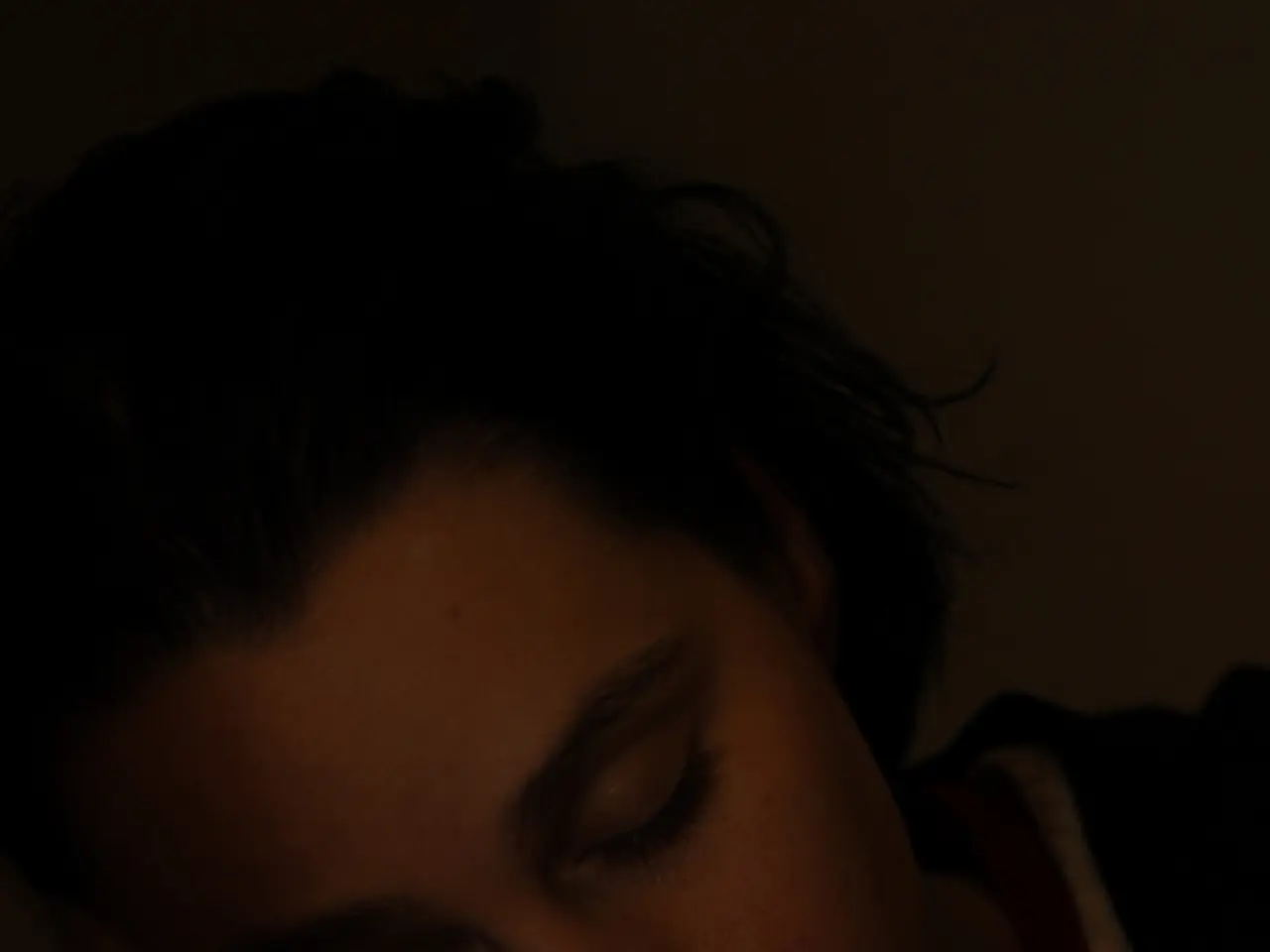Dementia's Advanced Stage Manifested by Excessive Daytime Slumber
In the journey of living with dementia, patients may experience a range of symptoms, one of which is excessive daytime sleepiness. This article aims to provide insights into the causes, management, and support for caregivers of individuals with dementia.
As the disease progresses, dementia patients may develop sleep-disordered breathing and restless leg syndrome, leading to disrupted sleep patterns. The mid-to-late stages of dementia, in particular, are associated with increased daytime sleepiness, as the brain's internal clock (circadian rhythm) becomes increasingly disrupted.
This disruption results in fragmented nighttime sleep and excessive napping or sleep during the day. The underlying cause is the disruption of the circadian rhythm caused by brain degeneration, including impaired melatonin production, reduced physical activity, and less exposure to natural light, which all disturb normal sleep-wake regulation.
To manage increased daytime sleepiness in dementia patients and support caregivers, several strategies can be employed. Establishing consistent daytime routines, improving exposure to natural light, creating a calming bedtime routine, monitoring medications and health conditions, optimizing the sleep environment, and providing caregiver support and education are all crucial.
Regular physical activity and scheduled social interactions during the day help keep patients engaged and promote nighttime sleep. Maximizing daylight exposure helps regulate circadian rhythms in dementia patients. A calming bedtime routine, minimizing stimulating activities, and using relaxation techniques can help reduce nighttime wakefulness and consequent daytime sleepiness.
Caregivers should monitor medications and health conditions, as sudden or excessive daytime sleepiness may be due to medication side effects or other health problems. Ensuring the sleep environment is comfortable, quiet, and dark during night hours supports better sleep quality. Educating caregivers about expected sleep changes and providing strategies to handle sleep disturbances is essential, as disturbed sleep is one of the most distressing symptoms for both patients and caregivers.
Because excessive daytime sleepiness may sometimes signal worsening dementia or other health issues, medical evaluation is important to distinguish normal disease progression from potentially treatable causes.
Non-pharmacological interventions, such as bright light therapy, have shown improvements in sleep symptoms for dementia patients who sleep a lot, according to a study by Johns Hopkins University, Baltimore. Treatment methods like bright light therapy and stimulus control can boost the energy level of dementia patients.
It's essential to remember that dementia is an umbrella term for several neurodegenerative diseases, including Alzheimer's disease and Frontotemporal Dementia. A study by Stuart J McCarter and his associates finds that insomnia and excessive daytime sleepiness are common in patients with Frontotemporal Dementia. It is common for Dementia patients to have irregular sleeping patterns, with some patients sleeping a lot, while others do not sleep adequately.
In the later stages of Alzheimer's, the patient feels tired and jaded all the time, spending most of their time on their bed or a couch. Constantine Lyketsos and his associate sleep scientists at Johns Hopkins University recommend bright light therapy for dementia patients who sleep a lot.
While increased daytime sleepiness is a common and expected part of mid-to-late stage dementia, it can be managed through a combination of behavioral, environmental, and medical approaches aimed at reinforcing normal sleep-wake cycles and supporting caregiver coping. Consult a doctor if an elderly family member is showing symptoms such as irregular sleeping patterns, increased sleep, and declining cognitive activity.
- Dementia patients in the later stages, such as those with Alzheimer's, often experience constant fatigue and spend a significant portion of their time sleeping.
- Mental health conditions like dementia are associated with neurological disorders and can lead to various medical conditions, such as sleep-disordered breathing and restless leg syndrome.
- To manage daytime sleepiness in individuals with dementia, strategies can include establishing regular daytime routines, increasing natural light exposure, and employing non-pharmacological interventions like bright light therapy.
- As dementia progresses, it's crucial for caregivers to monitor medications, health conditions, and sleep patterns, as excessive daytime sleepiness may indicate worsening dementia or other health issues.




